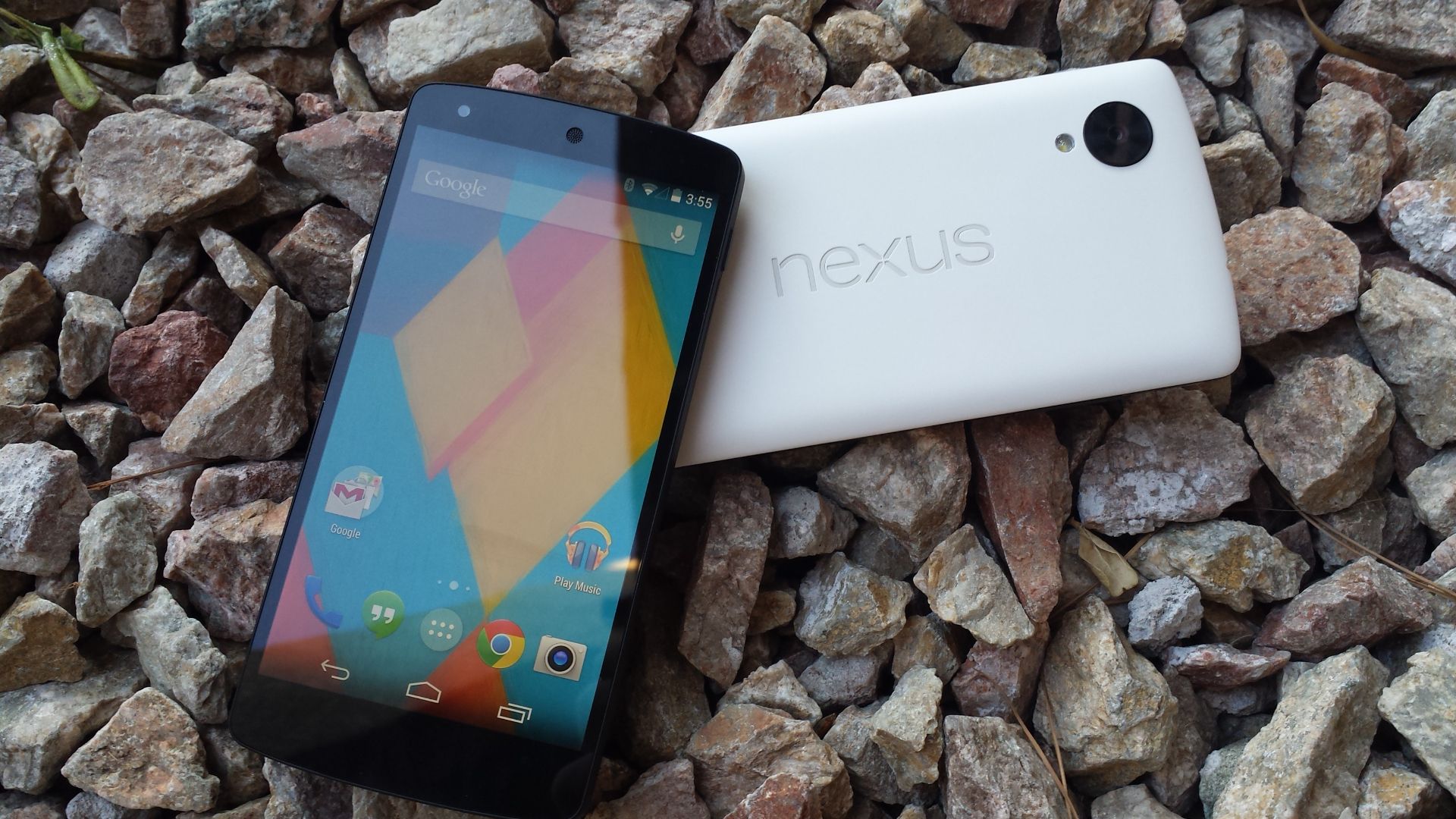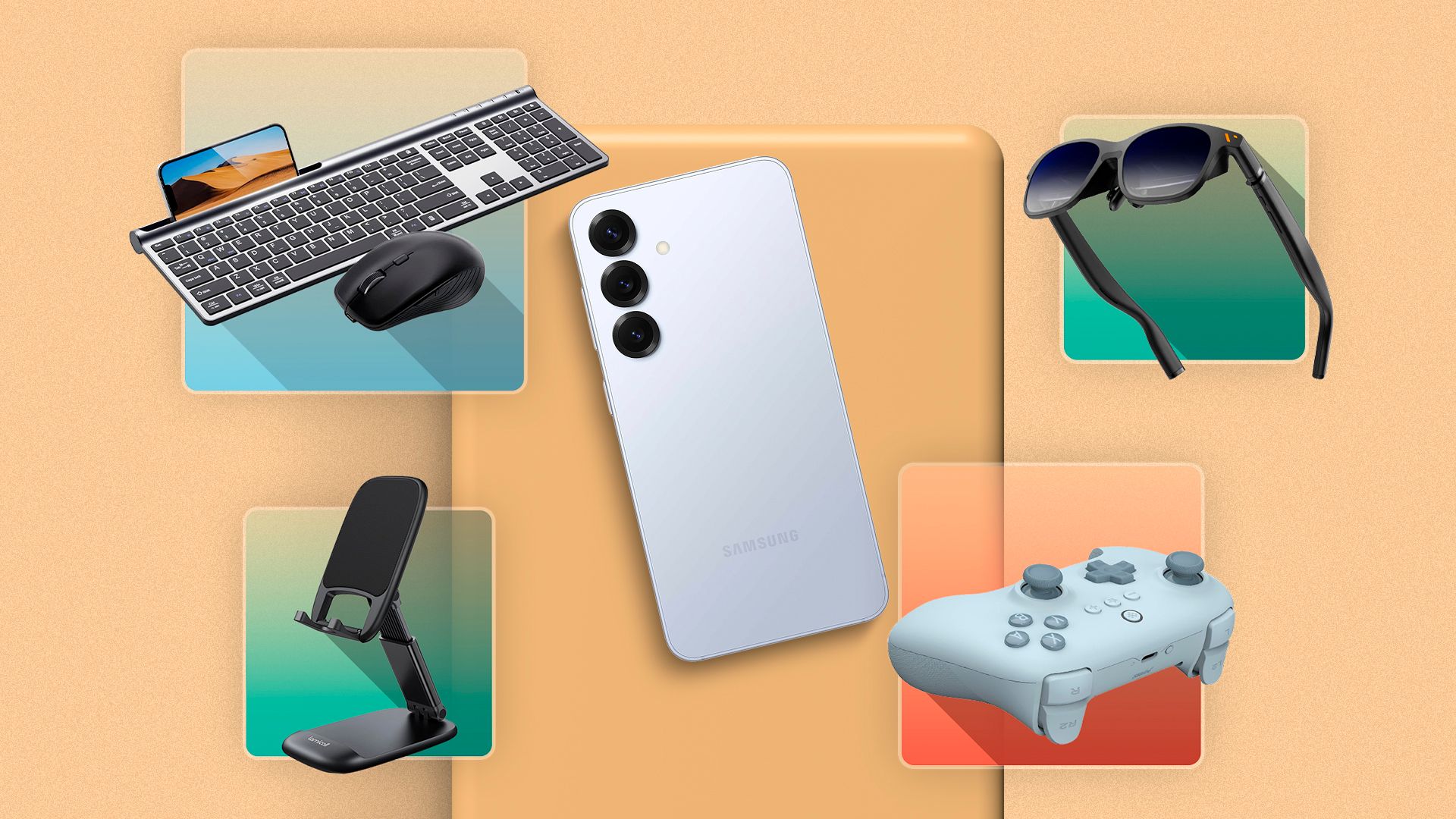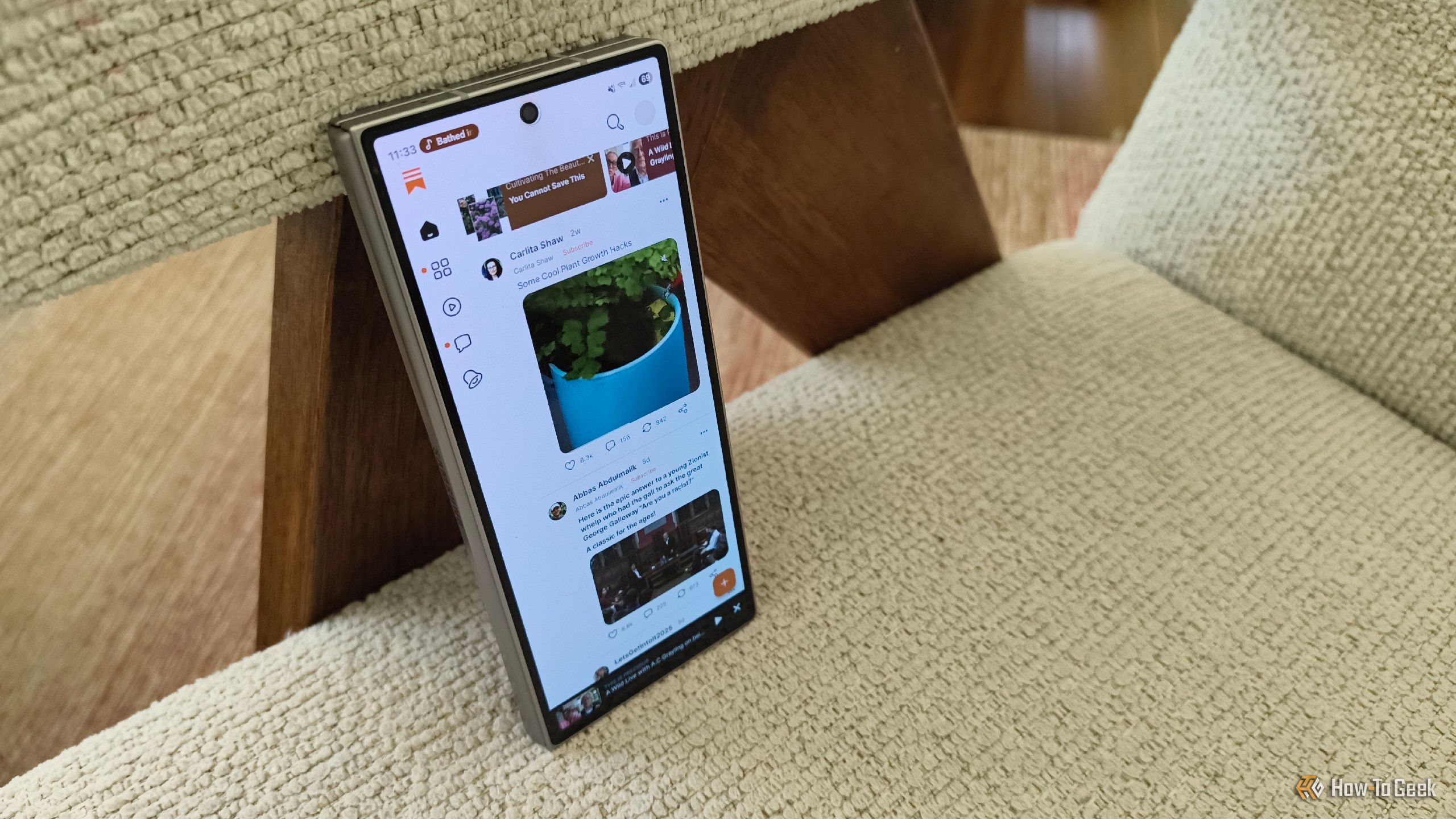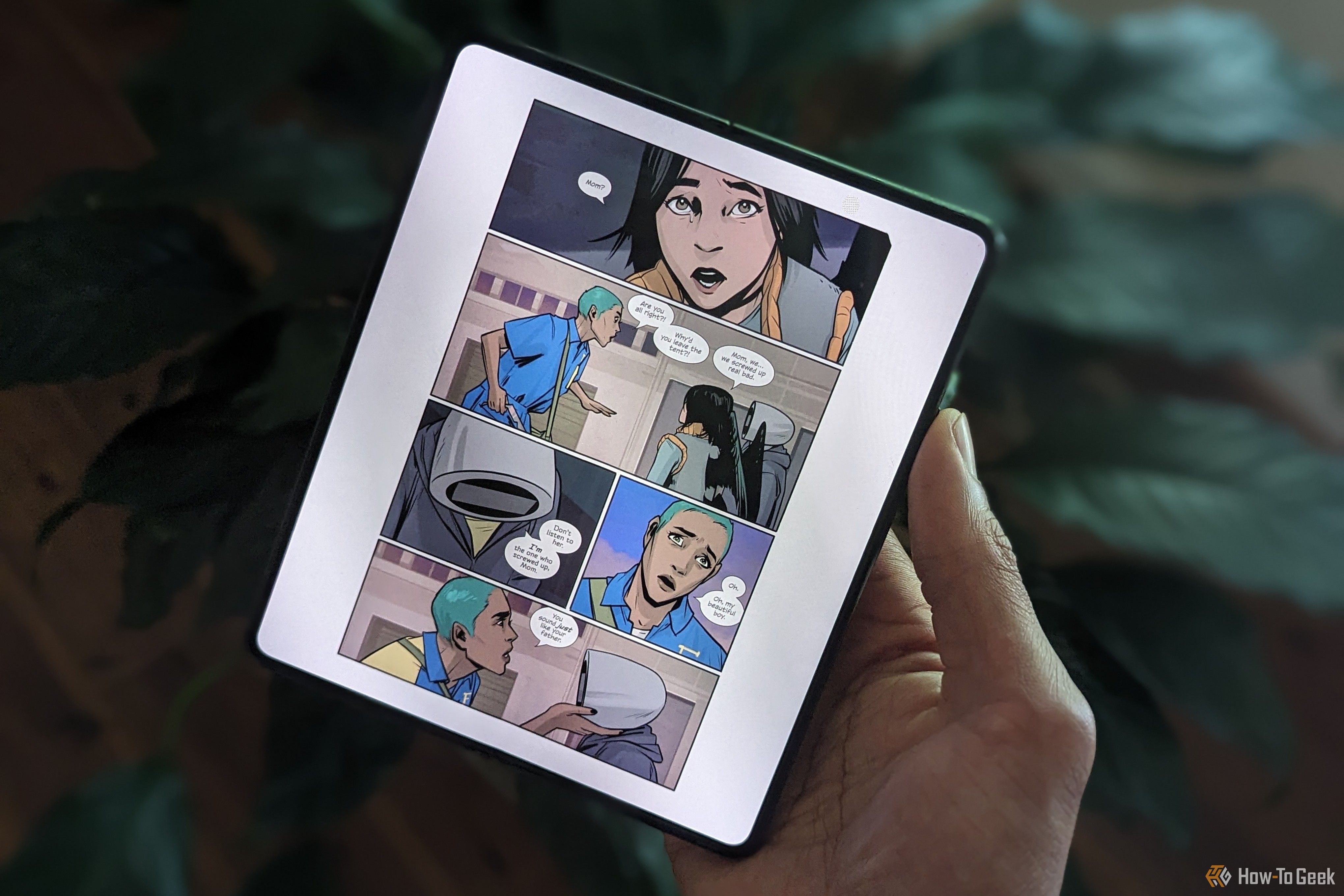I’ve covered smartphones for most of my career, yet there were years when I carried a dumbphone instead. I thought I had grown to hate smartphones. Turns out, it was just the algorithms I couldn’t stand.
I Became Fed Up With Smartphone Apps
I got my start as a tech journalist during the smartphone boom of the early 2010s. Each new phone was exciting, as were the new versions of Android and iOS that ran them. We were stoked to see apps appear in app stores, since they were doing so for the first time and offering us power we’d never had in our pockets before.
As the years went by, I grew disillusioned with the industries that formed around phones. Seemingly, every app, every new web service, and even the phones themselves were just data grabs.
I remember the day the Nexus 5 came out—there was so much hype around this device among us Android nerds, and that launch day ended up as one of the most hectic and busy in my career. This was also the phone where just about every previously open-source Android app was replaced by an app tied to a Google service instead. The generic web browser was replaced with Google Chrome, the local music player swapped out for Play Music, and the SMS app replaced with Google Hangouts.
Google was hardly alone in trying to lock us into an ecosystem. Many creators were being paid to track our every interaction and keep us as hooked to all of their creations as possible. They were peddling drugs, and as a tech journalist pointing people toward the new phones and apps, I was their dealer.
I Ditched a Smartphone for Years
After a few years of covering Android, I was over it. I said as much in a piece for MakeUseOf, where I pivoted to primarily covering Linux instead. I tried out various dumbphones, turned my smartphone into a minimalist phone using custom ROMs, and carried around a Light Phone 2 for a few years.
And to be honest, I was happy. I liked not having to wonder if my phone would try to show me ads or sell my behavior to third-parties (aside from my carrier itself). As the broader media talked about the woes of modern phones, I was immune.
But all was not perfect. My wife was no fan of me carrying around a dumbphone and our inability to communicate using any of the modern chat apps. We couldn’t do video calls without me pulling out a separate device. During my years with the Light Phone 2, I couldn’t even send or receive picture messages. To make matters worse, the non-smartphones I tried were all worse at being phones! They had spotty reception and inferior microphones, making the promise of prioritizing phone calls ring hollow.
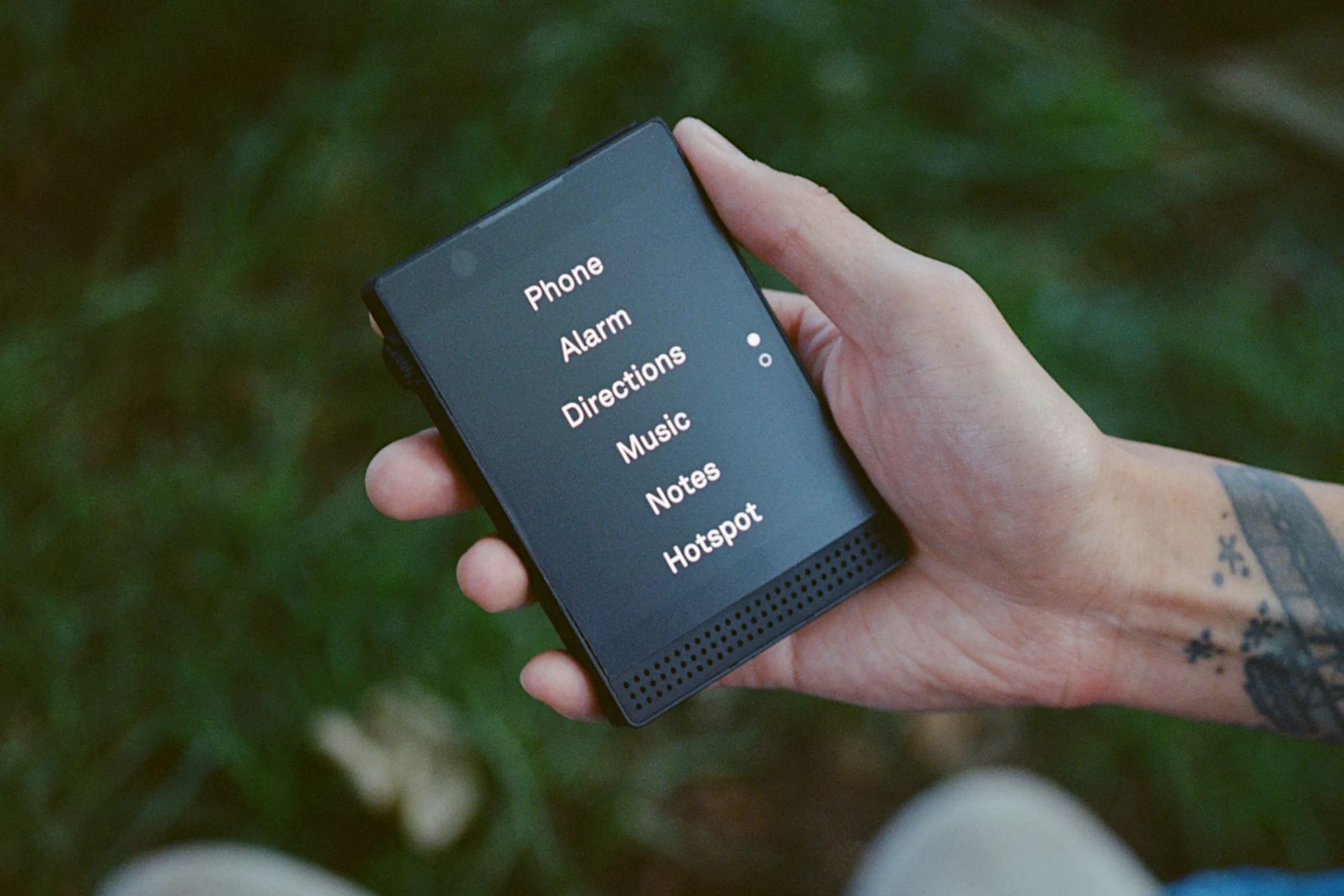
Related
6 Unexpected Ways Minimalist Phones Will Cause You Pain
There are the known knowns, and there are the known unknowns.
Now I’ve Replaced All the Things With My Phone
Things reached a boiling point when we were building our home, and my lack of a smartphone created so much friction between me, my family, and our various contractors that even I had reached my limits.
I found myself tempted by the thought of a modern flip phone like the Moto Razr that had more capability, but I would be able to keep closed most of the time. Yet it was the allure of Android desktops that won me over. Here was an option that really appealed to the minimalist in me.
I fell in love, eventually settling on the Samsung Galaxy Z Fold 6 over the course of the past year and half.
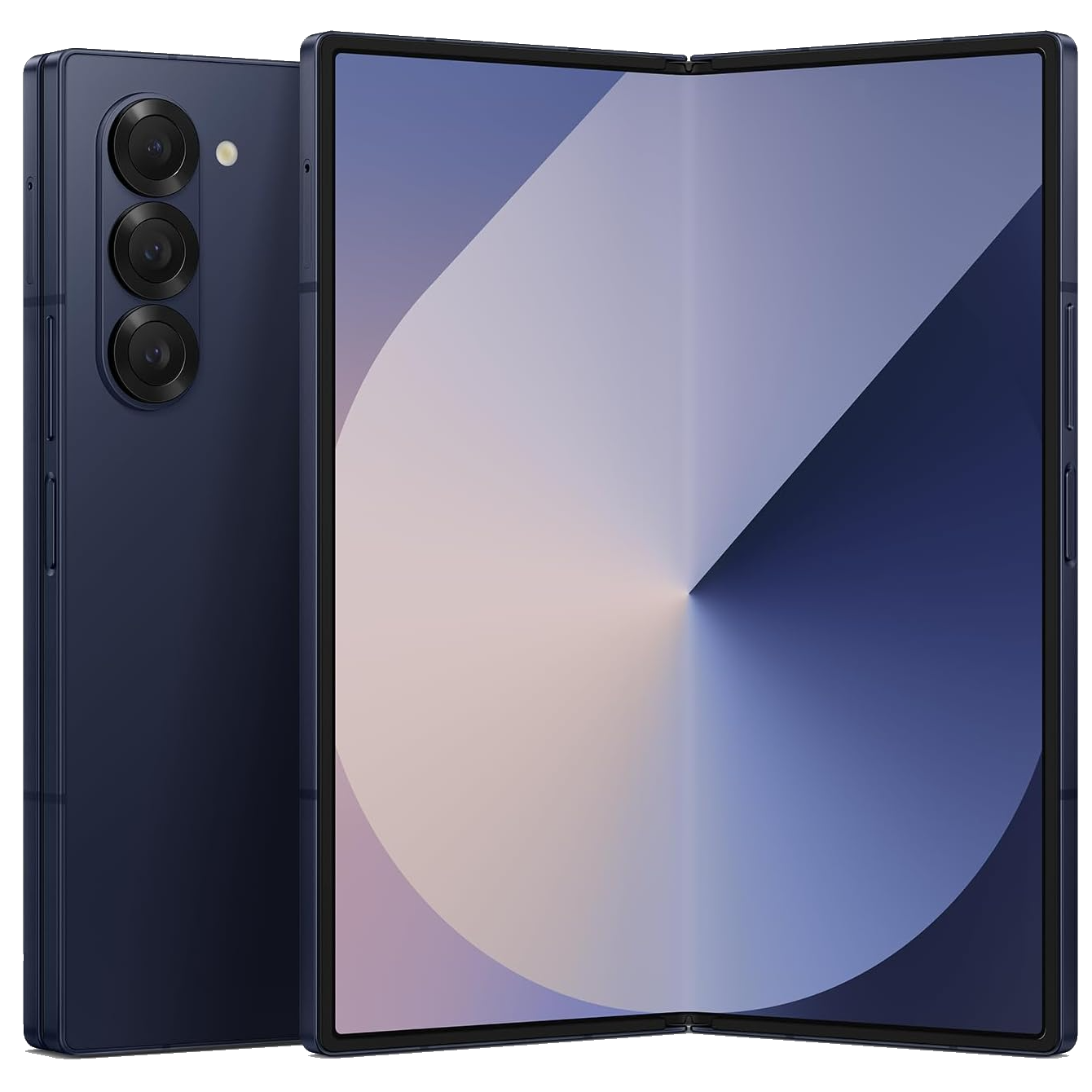
Samsung Galaxy Z Fold 6
The Samsung Galaxy Z Fold 6 is a foldable smartphone that combines the functionality of a tablet with the convenience of a phone. It features a large, flexible internal screen that automatically picks up where you left off on the cover display.
I no longer have a laptop. I sold my tablet. My E Ink devices are gone. I would say this is the most I’ve ever cherished a consumer electronic device, and it happens to be a smartphone! That is not something I would have expected just a few short years ago.
It Was Algorithms That Ruined Phones
I don’t feel about my current phone the way I did about phones in the past. For starters, I’m less of the odd one out. The addictive and destructive aspects of smartphones is now mainstream knowledge. Discussions around how to quit social media without missing out are everywhere.
My colleagues in the industry have largely gone from being cheerleaders of big tech companies to being critics. Those of us who enjoy these devices most increasingly have a hard time defending the companies that make them, which have become the largest and greediest in the world.
Yet in my personal relationship with my phone, I’ve found that it was the rise of algorithms that had really ruined phones for me. It was feeds slowly appearing in more and more apps, turning everything into a social network and trying to get me to care what friends and strangers are doing. I’m aware of my distaste for this now as I open the Substack app hoping to see the subscriptions I’ve followed, only to instead see a social feed.
Is Substack an alternative way to read long-form articles, or is it a social network? The result of this murkiness is I’m more likely to ignore the app and follow subscriptions via email instead.
Likewise, phones have also been ruined by the rise of features trying to predict what information I want based on all the information a service has been able to scoop up about me. We may call it AI today, but when Google showed off features like Google Now on Nexus phones and early smartwatches like the Moto 360, much of the sales pitch was largely the same: Here’s the information you want, before you know you want it, without having to look for it.
Now I Only Use My Phone In Ways I Actually Like
I am very deliberate about the apps I install on my phone. I have strict standards of how I protect my data, meaning I rarely use cloud-based apps and I only purchase DRM-free media (or media that’s easy to remove DRM from).
I have always found ads in apps intolerable, and I continue not to use social media. Right now, I don’t have video streaming apps installed, and I am extremely selective when it comes to finding good games on the Play Store.
When I pull my phone out of my pocket, I’m most likely to tap the Moon+ Reader app icon and start reading an ebook or immerse myself in a graphic novel.
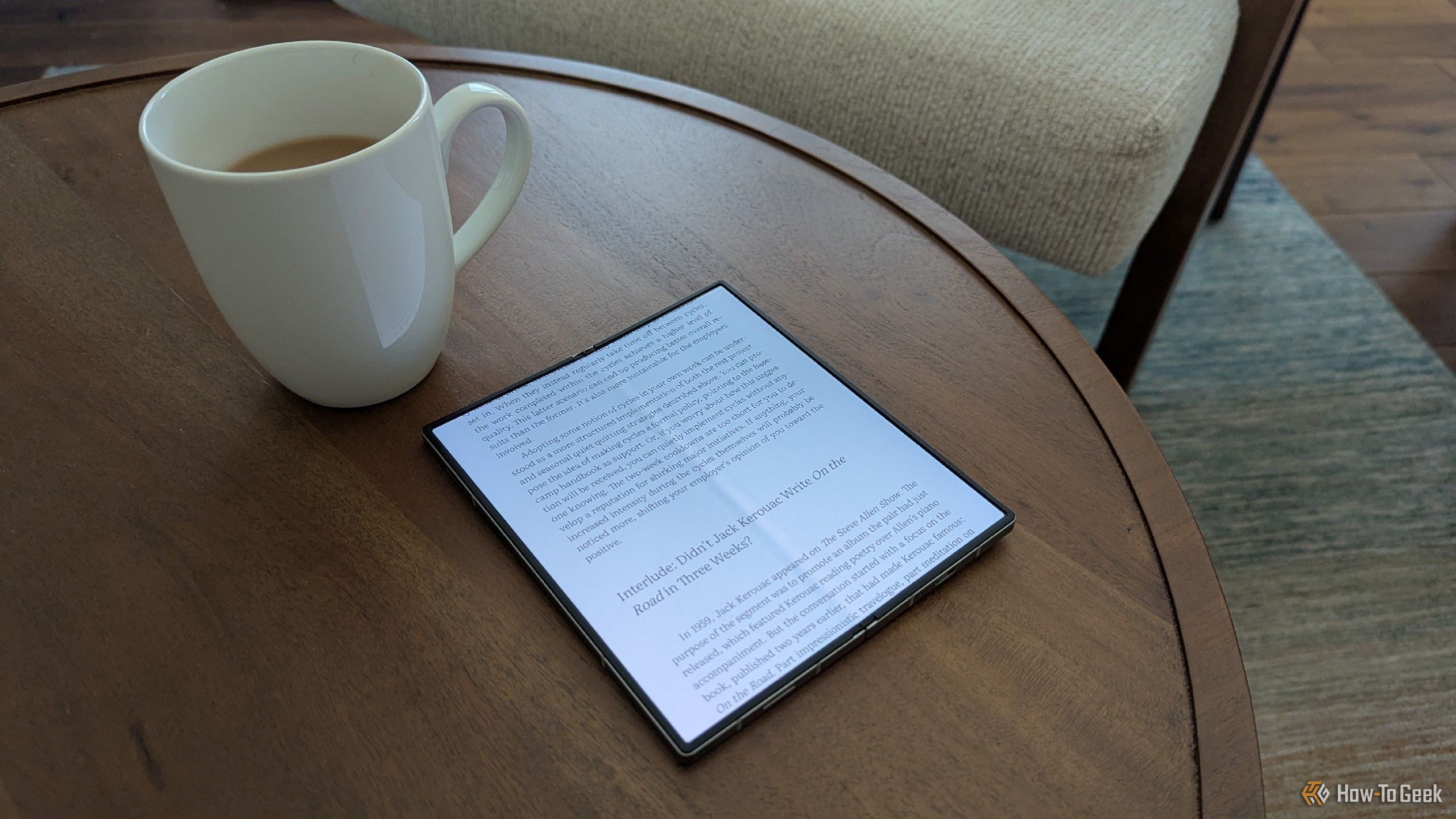
Related
Vertical Scrolling Makes eBooks As Addictive As Social Media
Want to read more books? Turn a weakness into a strength.
I always have my S Pen with me, and I am a heavy user of Samsung Notes. I start each morning using my phone as my handwritten journal.
My phone is now much less of a temptation machine. Or rather, it urges me to do more of the things I want to do more of: reading and writing. It also really helps that my book-style foldable phone has a physical shape that I actually like. I’ve never been a big fan of holding a candy bar-shaped slab, but I have a soft spot for 7- inch tablets.
My phone has become my pocket PC, yet that feels like an understatement. I’m carrying around my dream device, a digital notepad that I can write, edit, and publish from without needing to sit at a desk and hunch over a keyboard. This is one area where it feels like my sci-fi future has arrived, and I won’t let algorithms get in the way of me appreciating it any longer.


